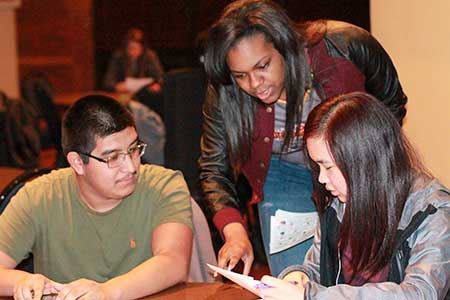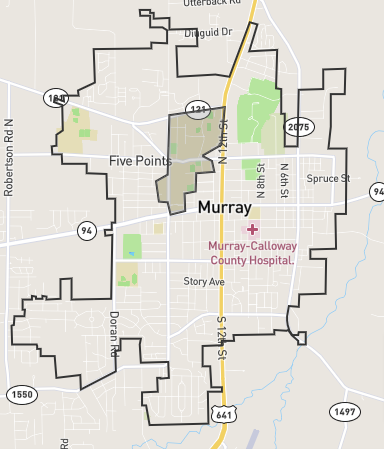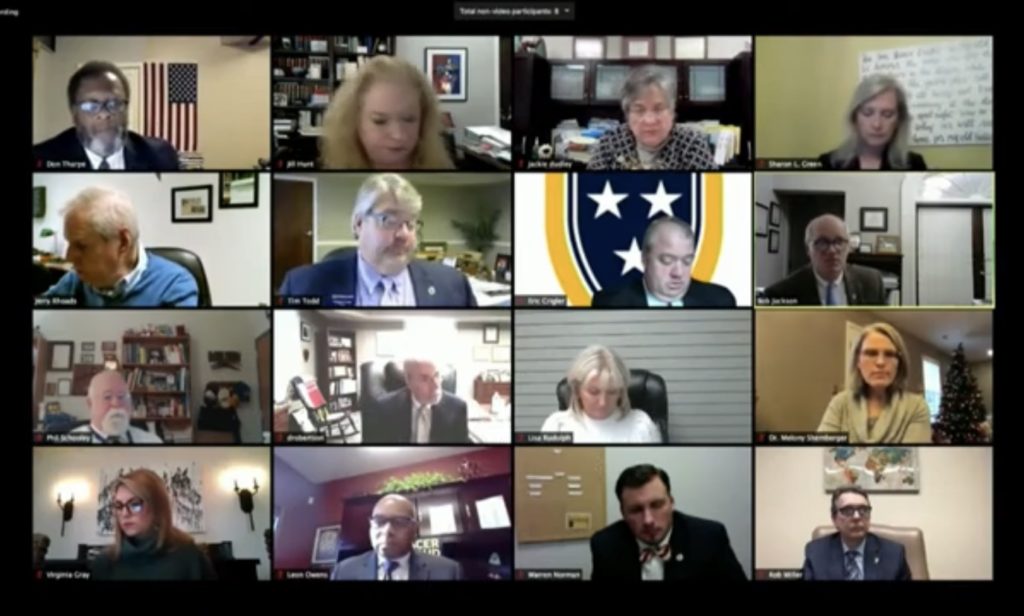
A member of the Black Student Council assists fellow students during the council’s trivia night.
(WITH VIDEO) – Imagine waking up in the morning and going where no woman has gone before, paving the way for the future and inspiring people for ages to come.
One can only imagine what was going through the head of the first black student at Murray State the first day she walked to class in 1955.
Mary Ford Holland was 48 years old when she was recruited to attend Murray State. On the 50th anniversary of her arrival at Murray State in 2005, Holland’s niece, Elnora Ford, spoke about her recollection of her aunt’s first experience as a black woman in an all-white school.
“She didn’t seem to be worried,” Ford said. “She said she took the Lord with her wherever she went.”
Ford said Holland was escorted to class by the police and the University president on her first day of school. There were no riots or protests, and Ford said her aunt recalled only one racial slur.
Holland was home-schooled until fourth grade because there were no desegregated schools in the early 1900s. She got her teaching certificate in 1935 from the Kentucky Industrial School and began teaching while taking classes at Murray State. Holland died in 1999.
Trailblazers like Holland are the reason people celebrate Black History Month, and the reason black students strive to give their peers a voice, said members of the Black Student Council Tai Collins and Dominique Horton.
“(Black History Month is) a time where you reflect on historical figures and prominent people back in the day,” Collins said. “They have paved the way and set the bar high for African-Americans. It’s a time to look back on and reflect on. They symbolize a lot for us.”
Since Holland took the courageous step to attend a desegregated university, other black students followed suit. During that same year, six more black students were admitted into Murray State, and eventually, black faculty members were accepted as well. Since then, black student enrollment has gradually grown to 7 percent of the student population.
Collins said she’s proud of how far the University has come in terms of black acceptance, but she still hopes for more.
“Of course we want more to go to college and to see a new face and hear a new voice,” Collins said. “We want it [African American enrollment] to increase significantly.”
Collins said the Black Student Council and other members of the Office of Multicultural Affairs are always trying to recruit more African Americans to the University and to join the many clubs that are geared toward black students on campus.
Dominique Horton, delegate for the Black Student Council, said it’s important for the historically black organizations to keep growing.
“There are not as many members this semester but we’re trying to recruit more people,” Horton said. “We want to give African-Americans a voice so we don’t go unnoticed. Because the bar is set so high, it’s our job to meet that bar and do our part so it doesn’t die out.”
Horton and Collins agreed it’s important for black students at Murray State to get involved in multicultural organizations on campus so their voices can be heard and each member can feel a connection to the innovative and courageous African-Americans that set the bar centuries ago.
Story by Madison Wepfer, Assistant Features Editor































































































